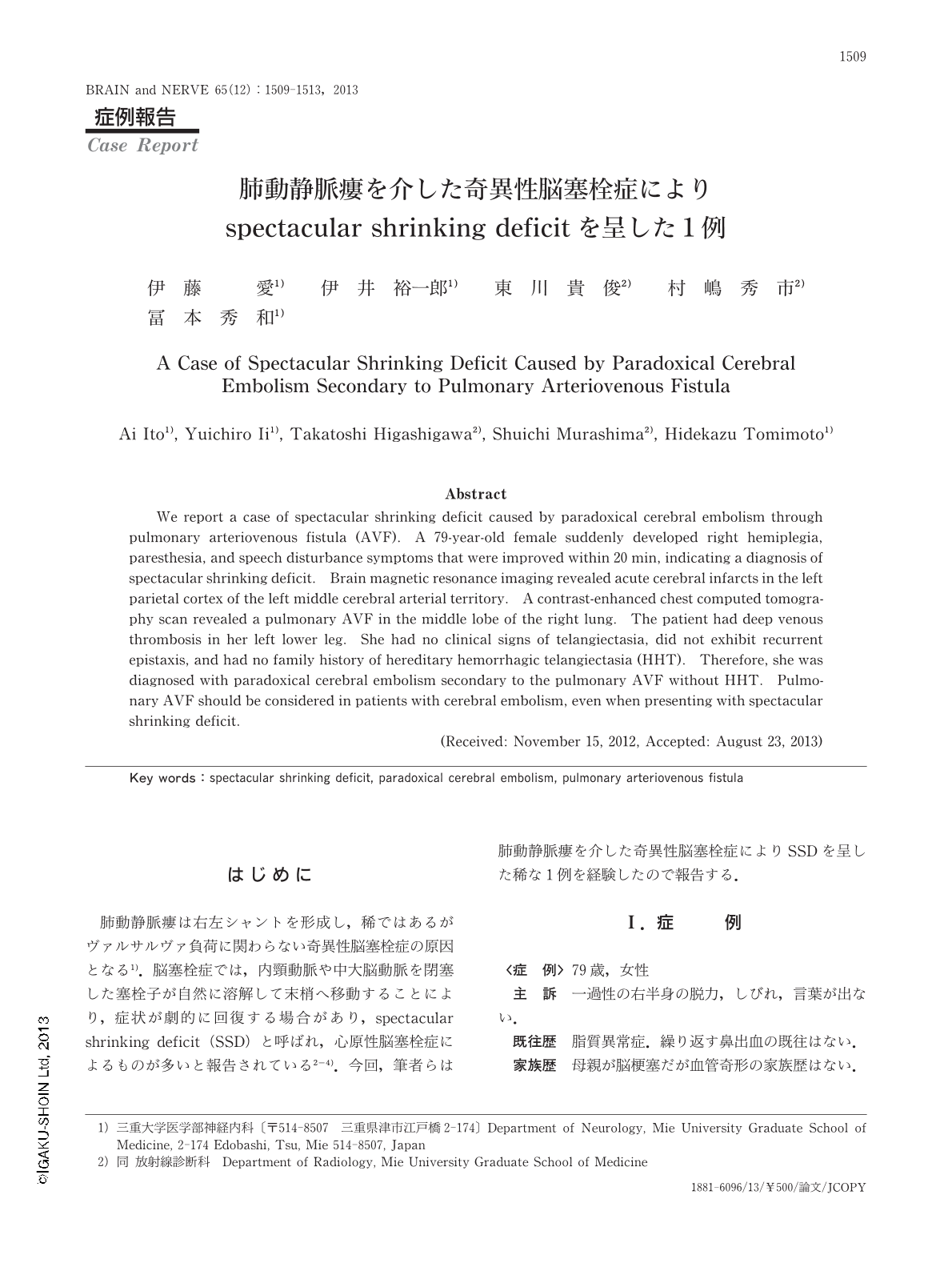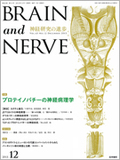Japanese
English
- 有料閲覧
- Abstract 文献概要
- 1ページ目 Look Inside
- 参考文献 Reference
はじめに
肺動静脈瘻は右左シャントを形成し,稀ではあるがヴァルサルヴァ負荷に関わらない奇異性脳塞栓症の原因となる1).脳塞栓症では,内頸動脈や中大脳動脈を閉塞した塞栓子が自然に溶解して末梢へ移動することにより,症状が劇的に回復する場合があり,spectacular shrinking deficit(SSD)と呼ばれ,心原性脳塞栓症によるものが多いと報告されている2-4).今回,筆者らは肺動静脈瘻を介した奇異性脳塞栓症によりSSDを呈した稀な1例を経験したので報告する.
Abstract
We report a case of spectacular shrinking deficit caused by paradoxical cerebral embolism through pulmonary arteriovenous fistula (AVF). A 79-year-old female suddenly developed right hemiplegia, paresthesia, and speech disturbance symptoms that were improved within 20 min, indicating a diagnosis of spectacular shrinking deficit. Brain magnetic resonance imaging revealed acute cerebral infarcts in the left parietal cortex of the left middle cerebral arterial territory. A contrast-enhanced chest computed tomography scan revealed a pulmonary AVF in the middle lobe of the right lung. The patient had deep venous thrombosis in her left lower leg. She had no clinical signs of telangiectasia, did not exhibit recurrent epistaxis, and had no family history of hereditary hemorrhagic telangiectasia (HHT). Therefore, she was diagnosed with paradoxical cerebral embolism secondary to the pulmonary AVF without HHT. Pulmonary AVF should be considered in patients with cerebral embolism, even when presenting with spectacular shrinking deficit. (Received: November 15, 2012, Accepted: August 23, 2013)

Copyright © 2013, Igaku-Shoin Ltd. All rights reserved.


